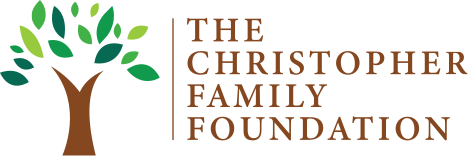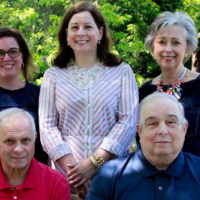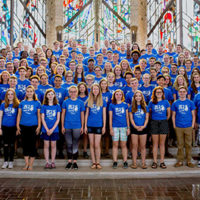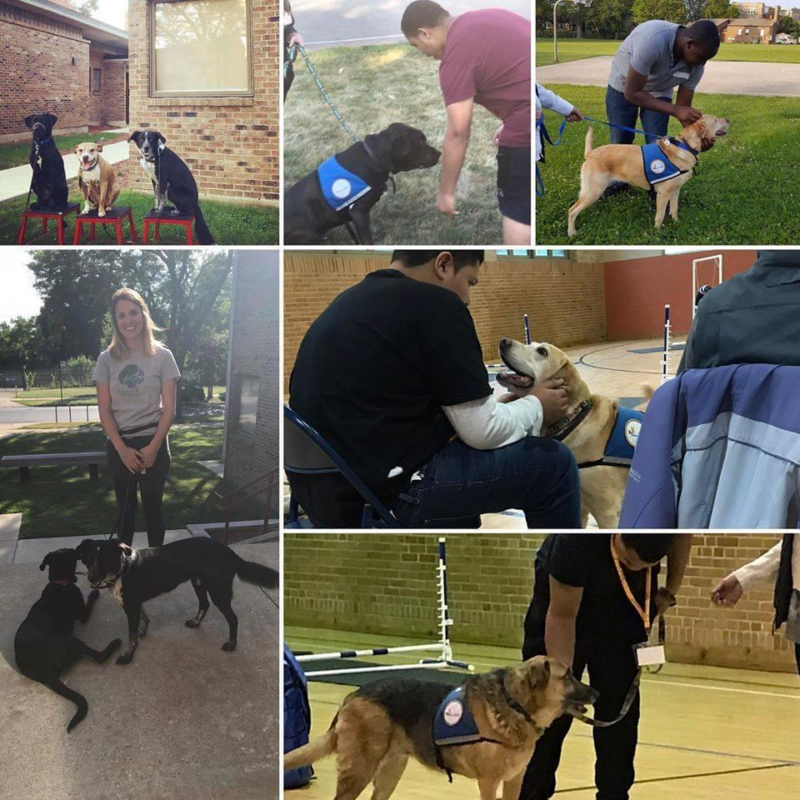On March 26th, Kara Teeple, CEO of Lawrence Hall, spoke with Molly Truglia, Program Associate of Christopher Family Foundation, about the impact of expressive therapies, incorporating restorative justice, and planting seeds that grow later.
Molly: For young people, this past year has had profound academic, social, and emotional impacts. For the youth you work with, Kara, what has been especially difficult about this year? And what’s helped them to find resiliency or points of joy to continue pushing through?
Kara: Sure—a challenging year, to say the least, right, Molly? Yes, as you can imagine, especially for kids with highly acute trauma histories. Pre-pandemic, our kids were able to see their siblings and have great connective visits, and then it all came to a halt. And then your world went completely virtual—whether you’re in the system or not—it’s a struggle for any family, let alone for these highly acute young people, so emotions have been high.
We’ve been able to manage. For instance, we’re still able to conduct our expressive therapies program. Music therapy is huge for our kids: finding outlets for them to be able to express their feelings of isolation, depression, insecurity, and anger is empowering. We try to incorporate as much normality as we can—celebrating birthdays, achievements in school, “Hey, you got an A on your homework!” Still not ‘normal,’ but we’ve been able to make it fun.
Speaking of fun, we built an ice-skating rink! We thought, okay, our kids can’t leave campus, so we needed to bring some outdoor activities to them this winter. Now, we’re building a healing garden that we will unveil on June 30th and our kids have been really involved in that. It will be a space for the kids, their families, and our staff to go to when they need to heal.
M: You touched on your expressive therapies work. Can you talk more about the wide variety of therapies you offer—canine therapy, wilderness therapy, expressive therapies—and how those different forms of therapy help youth in their path towards healing?
K: I think we can all understand that regular talk therapy, whether individual or family, is not always normal for kids to try to open up, so we do what we call “interactive therapies.” Our canine therapy (with our partner Canine Therapy Corps) is transformative. The culmination of a 10-week program is a graduation ceremony—all the dogs came back with their owners, and it’s so incredible to see the kids run to the dogs they had learned to do a trick and obedience training with. It’s a way for them to say, “Wow, I feel proud of myself because I’ve had this great interaction and bond with the dog.” I wish we could have dogs here all the time—dogs really are incredible therapists.
We do wilderness therapy (with our partner Adventures Accessed) as well. We did an overnight camping event on our campus a couple times over the summer, and that was such a great way for the kids to have a ‘normal’ activity and connect with nature. Music therapy, we’re still doing in-person, but now we’ll move to virtual for this new COVID strain that we’re seeing here. We also do drama therapy through our partner 2nd Story. They work with our kids on story development and writing and then producing their own podcasts—using their imagination to help process their emotions is incredibly therapeutic.
These services are so critical to coping and feeling one’s positive self-worth. Telling your story. If you can’t talk to your therapist, you can share what you’ve been going through using these expressive therapies.
M: What do you wish people knew or understood better about the work that you do or the youth that you serve?
K: That people would know a kid would do better if they could. These are not kids who want to do bad. The trauma histories that bring them to Lawrence Hall—it’s hard to really break down those trauma walls. A big part of our work is providing them with the tools to succeed. I just wish that people could understand these are not kids who will never succeed, that will never go on to college—we absolutely have kids that go on to higher education. We also have kids that choose to go on to vocations. Whatever their path is, I just want them, we all want them to have a path that is going to allow them to make a wage to support themselves, have a roof over their head, proper food. And I hope they grow a family of their own someday.
If our kids do get into trouble in the community, which can happen on some occasions, it’s their trauma histories that are triggering the behavior. I’m not minimizing accountability, but sometimes law enforcement . . . there’s a better way to manage, and that’s why we’ve been getting into the restorative justice space as a way to repair the damage.
M: Can you talk a little bit more about the restorative justice work? Is that a new piece of your work?
K: It is fairly new. Some of our staff trained on the model a couple years ago, but now we’ve brought in a full-time Restorative Justice Coordinator who works across all of our programs to coach staff to come together in a healthy space and develop a plan about healing and restoring. One of our kids broke a window in the community recently, and that community member does volunteer work, so our kid went with them to feed the homeless. This community member is willing to take a chance, but I need my kid to also show up knowing the harm that they caused, and that was a way we repaired some of that damage. This model doesn’t always work for certain crimes, but I think it’s a great opportunity for kids to really learn more from their behavior versus the juvenile justice pathway.
M: What led you to this work, Kara, and what motivates you to continue doing it?
K: I haven’t been asked this in a long time! I just love the impact of planting seeds that grow later. A young person may not succeed on their journey with us, but when we see them later—I mean, I had a kid not that long ago who was in my face, about to punch me, and I’m like “Jackie, I’m not going anywhere, I’m trained in therapeutic crisis intervention, but I’m going to be here, so you can do this, that’s fine.” And then two years later, he’s living in Mississippi with family and still calls me. So, it’s about not giving up. I try not to give up at all. I try to make sure that our team is about every opportunity to help the young person. And that’s hard. Some people say, “Kara, we can’t help them.” And I say, “No, we need to regroup and find a different way.” And even if that doesn’t work, we’re still going to be a lifeline down the road for this young person. So yes, I love what I do. I’ve been here seven years. This is my second family, and I have the best team around, too.
M: How can people get involved in the work at Lawrence Hall?
K: Volunteering is a great way. We do one-time events—have a company team come in and, say, do spring clean-up planting with our kids. Or you can become a mentor or tutor to one of our kids. If you’re interested in board involvement, we always welcome new board members. And foster parents are huge, if anyone knows of people who are willing to open their heart and their home to these awesome kids we are here to support you on the journey. There aren’t enough people to do that amazing work to get them into a family environment if they can’t be with their own family.
To learn more about volunteering with Lawrence Hall or supporting their work, please contact Monique Davis at mdavis@lawrencehall.org.
—Contributed by Molly Truglia, Program Associate


 About Us
About Us Programs
Programs